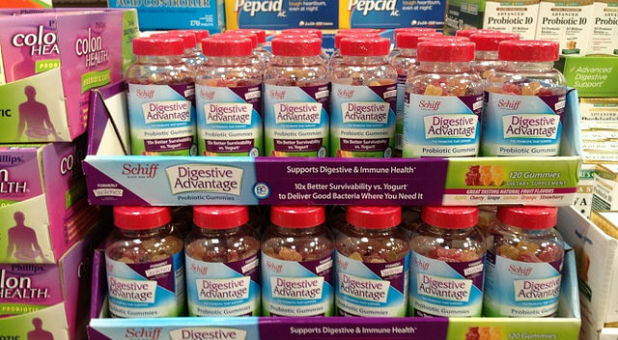Dietary supplements—those “all natural” products people consume for weight loss, extra energy or to self-treat various conditions—send 23,000 people, many of them children, to the emergency room in the U.S. each year, according to a new estimate.
Just over 9 percent require hospitalization. Many patients report heart symptoms.
The supplements include herbal products, amino acids, vitamins, minerals and other “complementary” nutrition products hawked for a wide range of uses, often with little or no testing to back up claims.
The new study “illustrates the idea that something that’s ‘natural’ is not necessarily safe, and these products do not come without risk,” said Curtis Haas, director of pharmacy for the University of Rochester Medical Center and a past-president of the American College of Clinical Pharmacy. He was not involved in the research.
But a trade association that represents supplement manufacturers, the Council for Responsible Nutrition, reacted with a statement arguing that the results “reinforce that dietary supplements are safe products, particularly when put into the context with the number of people—over 150 million Americans—who take dietary supplements every year.”
Congress has thwarted attempts to strictly regulate the $14.8 billion industry, where products are often marketed as if they were drugs but safety testing and FDA approval are not required. Only if a product is later found to be unsafe can the agency ban it. Prescription drugs, in contrast, can’t go on the market unless they are shown to be both safe and effective.
The new study in the New England Journal of Medicine was based on a federal database of adverse events reported at 63 hospitals over a 10-year period.
At these hospitals, the research team identified 3,667 emergency room visits linked to the supplements. That extrapolates to 23,005 adverse events nationwide each year, including an estimated 2,154 hospitalizations.
Many of the patients were unsupervised children under 5. They accounted for 21.6 percent of the visits.
Chief author Dr. Andrew Geller of the Centers for Disease Control and Prevention in Atlanta, Georgia told Reuters Health the findings suggest that “all medicines and dietary supplements should be stored up and out of sight of children.”
Adults ages 20 to 34 made up an even bigger proportion of victims—28 percent.
Weight-loss products accounted for an estimated 3,339 emergency room visits each year by women, nearly three times the number for men.
Among males, an estimated 567 visits were attributed to products designed for sexual enhancement and 368 were for body building products. Comparable numbers for women were so small the researchers couldn’t come up with a reliable estimate.
Heart symptoms were the chief complaint in 43 percent of people taking weight-loss products, 46 percent of patients taking energy products, 50 percent taking body-building products and 37 percent taking sexual-enhancement products.
“What’s most concerning is the age of people coming in with cardiovascular complications or symptoms,” Haas told Reuters Health. “They are in their 20s to 30s, which shows there are risks to these products.”
“Young adults taking products to lose weight or increase energy should be mindful that some of these products can have effects on the heart and they shouldn’t be taking them in excess. And if you have a heart condition, talk to your doctors before starting a weight loss or energy supplement,” Geller said.
Among older adults, swallowing problems caused nearly 40 percent of emergency department visits for supplement-related adverse events, with micronutrients—vitamins and minerals that include iron, calcium and potassium—implicated in more than 80 percent of these visits, the researchers said.
“The number of emergency department visits attributed to supplement-related adverse events that we identified is probably an underestimation, since supplement use is underreported by patients, and physicians may not identify adverse events associated with supplements as often as they do those associated with pharmaceuticals,” the researchers said.
“Consumers should report to their doctors that they are taking dietary supplements, and which ones,” said Geller. {eoa}
© 2015 Thomson Reuters. All rights reserved.
See an error in this article?
To contact us or to submit an article





















